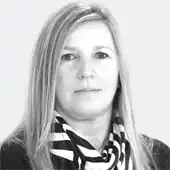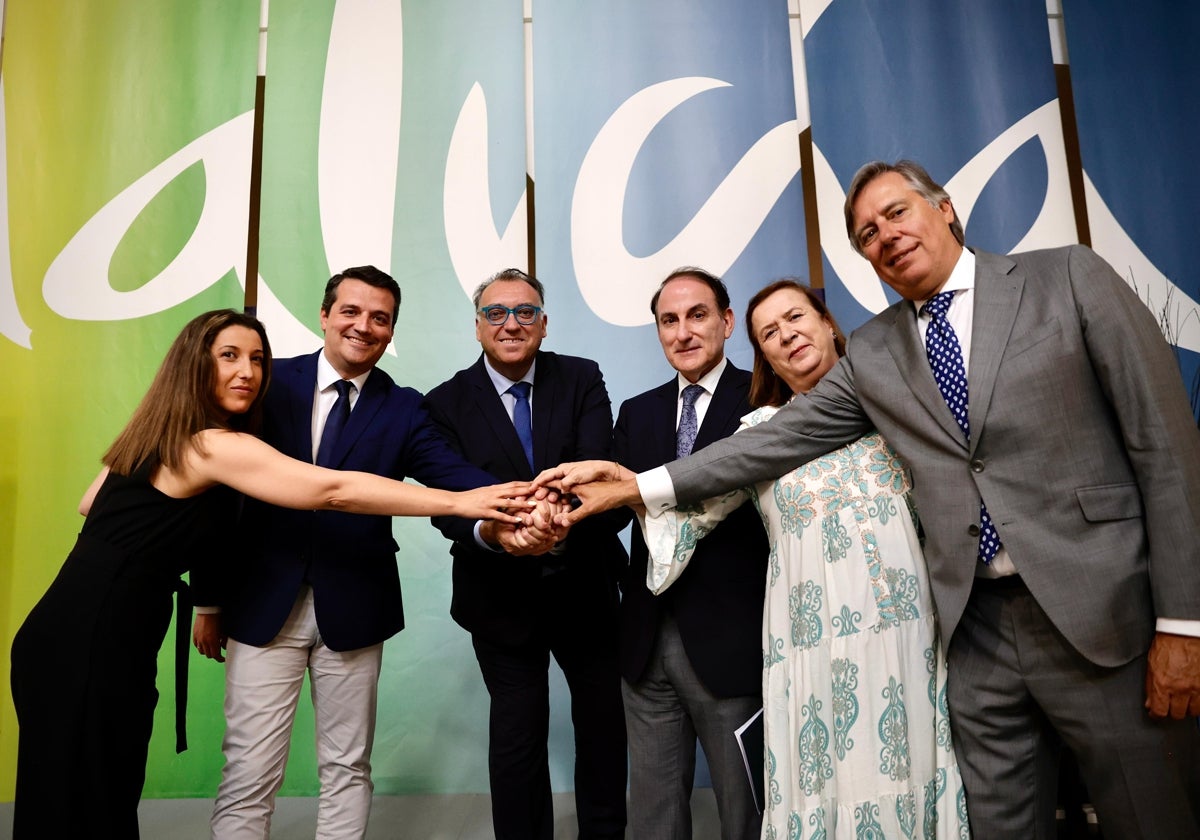Andalucía holds off tourist tax decision and sets up sustainability observatory
The aim is to use further data and studies to address appropriate strategies to respond to the debates on such as the setting of this tax and a viable development model to avoid tensions between tourists and residents
In this continuous back and forth of a debate that for years has always ended in stalemate, Andalucia's minister of Tourism, Culture and Sport Arturo Bernal has held the first meeting to find a mechanism to settle the controversy over the tourist tax and to open a framework that should help develop a sustainable model to avoid problems of co-existence between tourists and residents.
The president of the Confederation of Andalusian Entrepreneurs (CEA), Javier González de Lara, the head of the Andalusian Federation of Municipalities and Provinces (Famp) and mayor of Cordoba, José María Bellido, joined Bernal at the table to analyse what has been proposed by the controversial review board to implement the tax. After an hour of discussions at the headquarters of Turismo Andaluz, the three showed their cards and dealt a master move to close this controversy: to set up an observatory for tourism sustainability. The three stated that "it is premature" to decide now on the introduction of a tourist tax.
At the meeting, representatives from the Junta, the affected councils and businessmen agreed on, firstly, the importance and strategic value of tourism to the economy. They also agreed on the need to improve the financing of the municipalities that bear the brunt of tourism and on the need to establish a sustainable model that guarantees the co-existence of tourists and residents. Bernal explained the importance of this industry sector and its key role in the regional economy as the principal business activity, generating 450,000 jobs and 26,000 million euros of economic impact.
Premature
The group marked this day down as Day One for this observatory for tourism sustainability, taking Famp as its framework. It is the beginning of a work for which no deadline has been set, but method and objectives certainly have been set. Bernal insisted that "it seems premature to us to talk now about creating a tourist tax without having data to back it up or about the impacts of a tax amount that will also have to be defined, determined and fitted into the national taxation system. For this reason, we are going to activate this observatory in which working groups will be created to analyse tax, financial and sustainability policies based on data and realities. With that information we will work and respond to these situations that have more to do with problems of co-existence."
Bernal underlined the benefits of this industry and the need to act to prevent it from having a negative impact, especially in view of the wave of demonstrations in other destinations in Spain against tourist overcrowding, which Bernal blamed on "elements of co-existence that society is warning us that we must find a solution to. We agree that we have the best model of tourism, but we have to address the situation of what a tax is for and what impact it has."
Holiday home
In this regard, and in response to questions from the press, he referred to the phenomenon of holiday homes, expressing his suspicion that they are the sole cause of the problems of rental and property prices. Moreover, he pointed out that one of the working groups will address the impact of holiday rentals in the municipalities and the measures to be adopted.
Regarding the current rate of growth of tourism in the region, he said that "the battle against seasonality is being won" and that it has been confirmed that the greatest increases in the arrival of visitors to the region are occurring in the months outside high season. He highlighted the growth in tourists coming in January, February, March, November and December. This state of play helps with the sustainable growth they seek. By spreading the flow of visitors throughout the year this also results in greater job stability.
For his part Bellido expressed his satisfaction with the meeting and his support for the proposal to involve the municipalities. He pointed out that, after all, these are the places where the tourism industry is developed and which require funding to provide services, improve infrastructure and provide guarantees to meet the expectations of the tourist as much as of the resident. Combining both requires a very good knowledge of the needs of each and of the overall situation in order to adopt appropriate measures such as the tourist tax that Famp supports, although Bellido believes that it would be premature to introduce said tax now. "We feel that the opinion of the municipalities is going to be heard in the Andalusian tourism strategy." He emphasised the importance of this observatory. "This industry, which is irreplaceable, carries on in the municipalities and cities that are the recipients of this tourism. It is a positive phenomenon, but we must work to encourage the industry to continue to grow and to be socially sustainable in those places. The answers will be provided by this observatory."
The Famp president emphasised that the aim is to "improve the management of tourism in Andalucía, both public and private. That is why this observatory is being created within the framework of Famp. We want to have all the data and knowledge and to know, in black and white terms, the real impact of this industry." Bellido explained that in the coming weeks the constitution and definition of the observatory will be defined. Then the necessary working groups will be set up, without interim or absolute deadlines, to take the decisions on the likes of sustainable development, whether to apply the tourist tax or what financing mechanism to help the municipalities to respond to tourism.
800 Andalusian municipalities
Bellido warned that "in this observatory, participation will be plural. We will have to talk about the financing of tourist towns and any decision may also have undesirable effects. This is the first day of work to guarantee sustainability and social coexistence. There are different realities in the more than 800 Andalusian municipalities, the challenge that unites us is to strengthen the tourism sector in a sustainable way with measures that are adapted to the reality of each city and each town in Andalucía." On these lines of economic aid to the municipalities, Bernal recalled the injection of 250 million euros of EU funds through various plans and expressed his desire to maintain this support with EU funding.
Turning to the business perspective of CEA president Javier González de Lara, he repeated the incalculable value of tourism in terms of employment, wealth generation, leisure activities, infrastructure and heritage conservation. That said, he declared that the time has come to take a hard look at the tourist tax: "it is not a question of creating new taxes, which is premature, but to see the reasons that are occurring in order to reinforce the mechanisms that favour this coexistence between tourists and locals, which on many occasions is motivated by people's behaviour, not by tourism itself."
In this sense, he defended the need to also address the welfare of citizens as a key element in social development. To this end he considered it important to have good public services and, therefore, adequate funding to avoid distortions of this positive vision of tourism. "It's an important meeting to value tourism, to establish guidelines for the future and to establish measures for sustainability. We find the proposal to sponsor this observatory very interesting. We as businessmen are going to contribute all our knowledge, but setting the tourist tax now would be premature." His words were echoed by Yolanda de Aguilar, Secretary General for Tourism for the regional Junta, and José Carlos Escribano, President of the Tourism Council of CEA and the Chamber of Commerce of Malaga.

